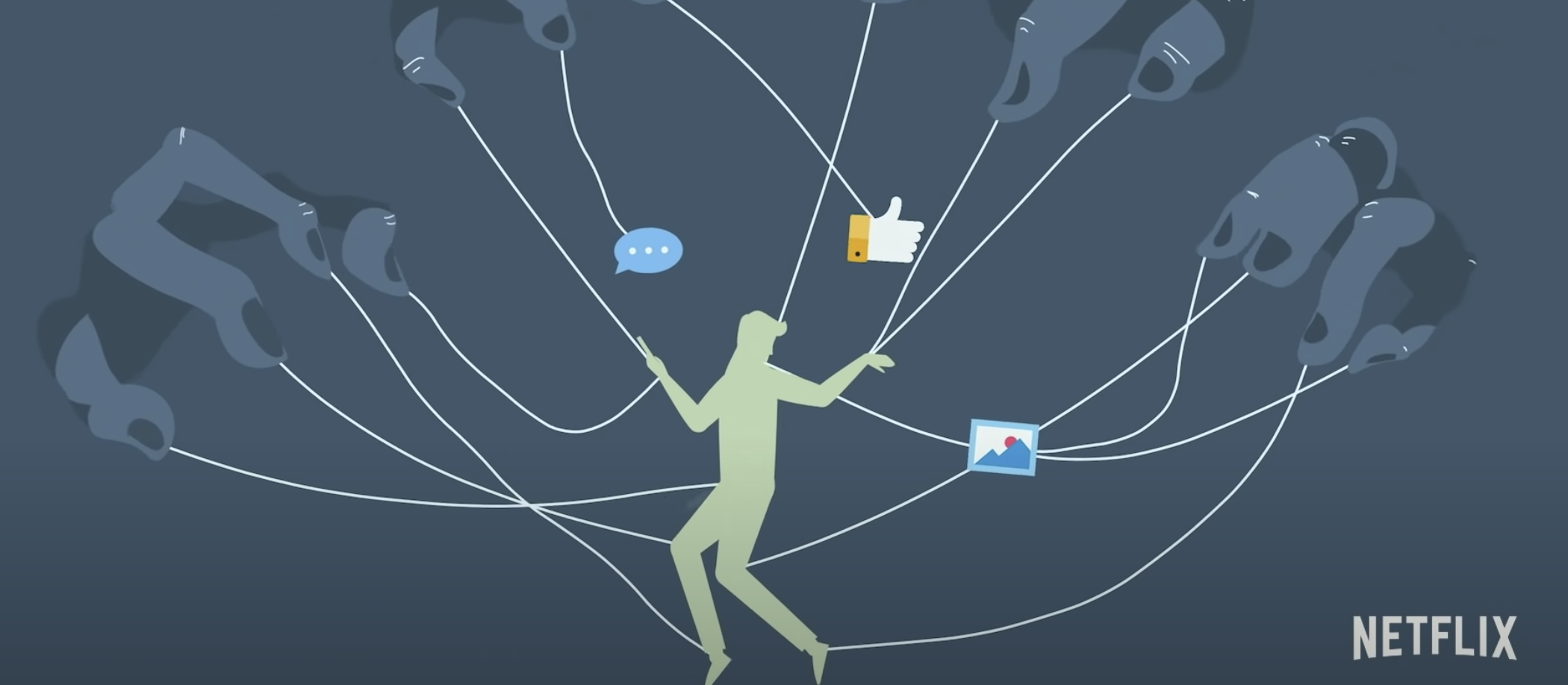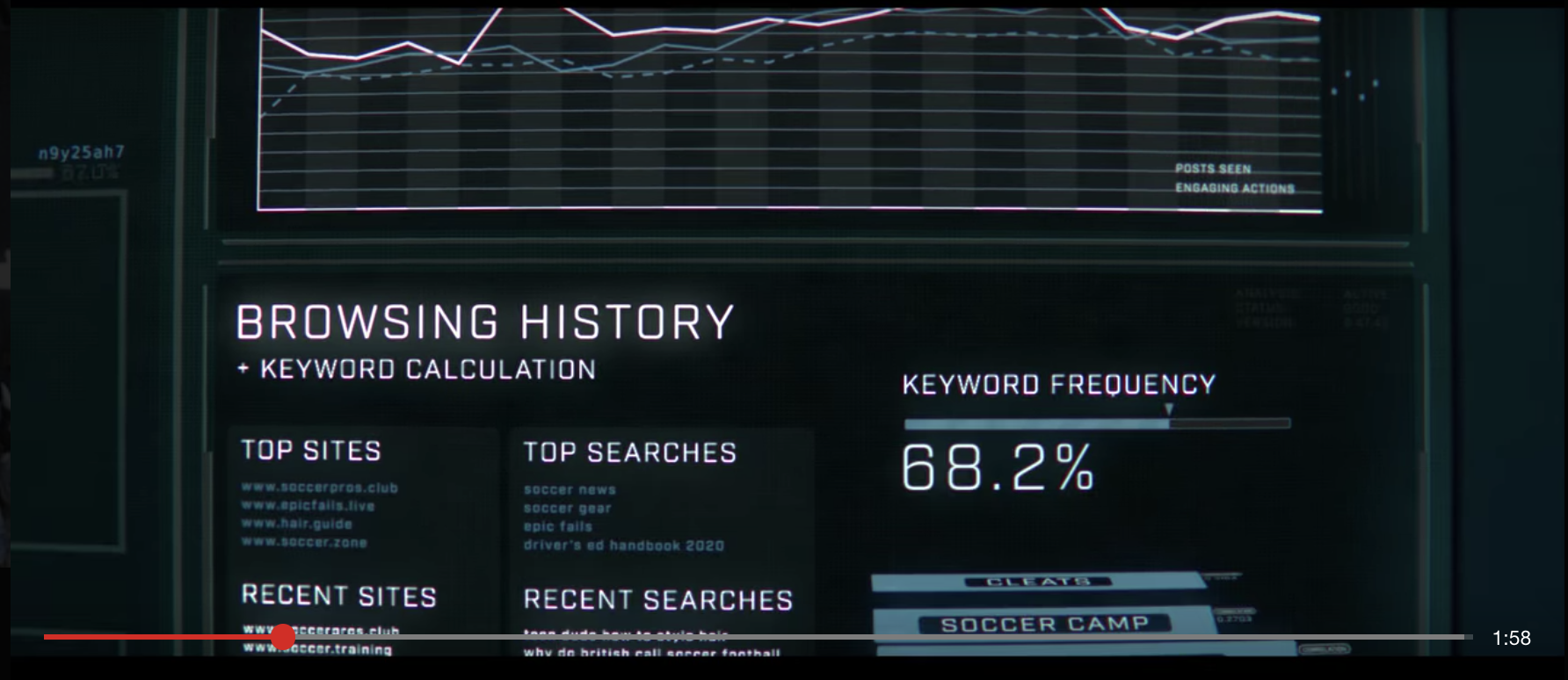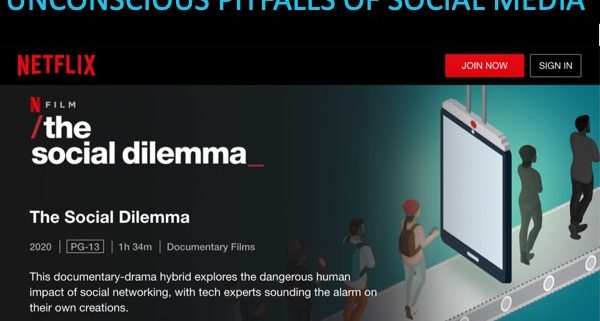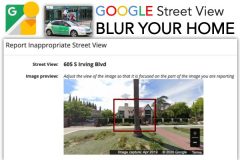Netflix Social Dilemma documentary examines social media pitfalls
Until I watched the Social Dilemma documentary on Netflix I did not understand how Republicans and Democrats in the United States of America could have such vastly different interpretations of the facts. For example, with over 215,000 people dead from Covid 19 in the USA, how could any American think this pandemic is a hoax? While the answer is somewhat complex, the documentary provides valuable insight into how this is possible.

Social media platforms manipulate and control us like puppets
Experts in The Social Dilemma tell us that social media is designed to get us to spend time online and to share information so the platforms can profit from it. They explain that as we use different types of social media, including email, our brains are manipulated and rewired by algorithms that intentionally get our attention and make us do things. They also make us buy things, including buying into inaccurate and distorted ideas about the world, ourselves, and each other. There is no doubt that WE are the product and advertisers are the customers.
Everything we do online is tracked. The documentary covers a variety of problems caused by social media including cyberbullying, extreme loneliness and low self-esteem, but awareness of these common problems are not new to us. The biggest takeaway for me from this documentary is that when using social media, each action we take results in specific information being fed to us by algorithms that determine what content we see. The more we engage with such content, the more we see similar content that supports and reinforces the same ideas and beliefs. This applies to both true and false information however, according to one of the experts, fake news spreads 6 times faster than real news.

Everything we do online is tracked
Since algorithms cause social media users to be bombarded by similar content whether that content is accurate or not, it makes sense that the documentary experts who have or had involvement in the design and marketing of the very platforms they are exposing are uncomfortable and somewhat apologetic as they share their insight. These top executives and employees from Google, Twitter, Instagram, Pinterest, Facebook and other platforms explain how addiction and privacy flaws are intentional features of the very social media platforms they are connected to and they admit that they deny access to their own children in many cases. They also admit that they suffer from the same social media addictions as the rest of us. If the spreading of misinformation was not intentional in the design of social media the issue is that once the platform designers realized this flaw they have not done enough to help rectify this huge problem.
Some of the experts’ conclusions and suggestions:
- The fundamental way technology and social media is designed is not going in a good direction. We need to change that. We have to. We’re on the fast track to Dystopia and we need collective will to figure it out.
- Big failure in technology is a failure in leadership about open conversations about what is good and what isn’t. The problem won’t turn around without massive public pressure or by having conversations and voicing opinions, even if through these very same platforms.
- The goal of one of the designers is not to harm platforms like Google and Facebook. It is to reform them before they destroy the world.
- Fight back by uninstalling apps (news, social media) from phone. Reduce and/or disable notifications with anything not timely or important right now.
- Don’t use Google for browsing. Use a browser that doesn’t track everything you do.
- Never accept the video recommended to you. Always choose your own.
- You can use chrome extensions to remove recommendations. (Suggested by a Google designer of those same recommendations he designed.)
- Before you share, fact check. Consider the source. If it’s designed to push your emotions, it is probably pushing your emotions.
- You vote with your clicks. If you click on clickbait you are creating a financial incentive that perpetuates the situation.
- Get lots of information in your own life. Don’t only pay attention to like-minded people. Follow people who disagree with you. Get your information from multiple sources.
- Don’t let kids use social media or have screen time before high school or before the age of 16. For those that use screens, limit screen time by working out a time budget with an appropriate amount of time on devices.
- For adults and kids, all devices should be unavailable in the bedroom at a fixed time.
- One designer recommends deleting social media accounts. The goal is to be free of manipulation and to enable conversations not bound by manipulation.
I urge you to watch the Social Dilemma as soon as possible and to use the information you get from it in a positive way. Please have discussions with friends, family and strangers and encourage others to do the same because widespread discussions are critical to effect change if we want to reduce some of the dangerous negative consequences we are currently experiencing. Don’t forget the importance of exploring opinions and points of views that don’t match yours.
If you can’t watch this show soon and you’d like to see my notes that I took while watching it, please reach out to me and I’ll email them directly to you. It would be most interesting to know your thoughts in a comment following this article. You have a voice and you have the power to help effect desperately needed change.
Until next time,… Stay Cyber Safe.





As usual an excellent article……Looking forward to your next one!
Appreciate that. I’ll try to publish my next one in a more timely manner. 🙂
Heard about it and now will definitely watch the documentary. One of the things I’ve learned is the importance of libraries and how they can spur a person to find out the facts from unbiased sources. With Covid, libraries are offering so many additional services and programs to serve the public.
You honed in on the fact checking aspect which is important but only a teeny fraction of the issue at hand. I’d be curious to understand how a library can help with the fact checking of current events. Can you elaborate? For example, it’s a fact that 215,000 people have died in the USA, supposedly from Covid 19. Those who think Covid 19 is a hoax are likely to say that number is inaccurate because it includes people who died from other things too. The other side thinks that number is vastly underestimated because they think people died from something else with Covid as the underlying cause and that is not reported. How do you verify this in a library? I also invite you to return to this forum with an update after you watch the documentary. It will be interesting what you biggest take away will be at that time. Thanks for your insight and for taking the time to read the article and leave an opinion. That’s greatly appreciated. 🙂
Thanks for the great information ! The Social Dilemma Documentary is a very important documentary for all of us, especially
during this political season. It is quite enlightening and disturbing at the same time. A great suggestion, and a reminder that we can’t let our guards down. It is not a coincidence that certain stories and information flow into our news feeds. Thanks for the suggestion!
Very well stated, Stacey. Your statements, “It is quite enlightening and disturbing at the same time.” and “It is not a coincidence that certain stories and information flow into our news feeds.” are perfect!
As my daughter has quit her job as a lawyer to move to CA and take a job at Facebook (ugh!) so I was extremely interested in The Social Dilemma. The implications are terrifying. I have recommended that my daughter, son and everyone I know see it. This documentary illuminates so much that is hidden from us as private citizens and I thank you for this article. Cheryl
It would be very interesting to know what your daughter is doing at Facebook and what her take on thing might be.
Thanks for the feedback, Cheryl.
Please send me your personal notes.
Sure. Would love to hear your thoughts when time allows. 🙂